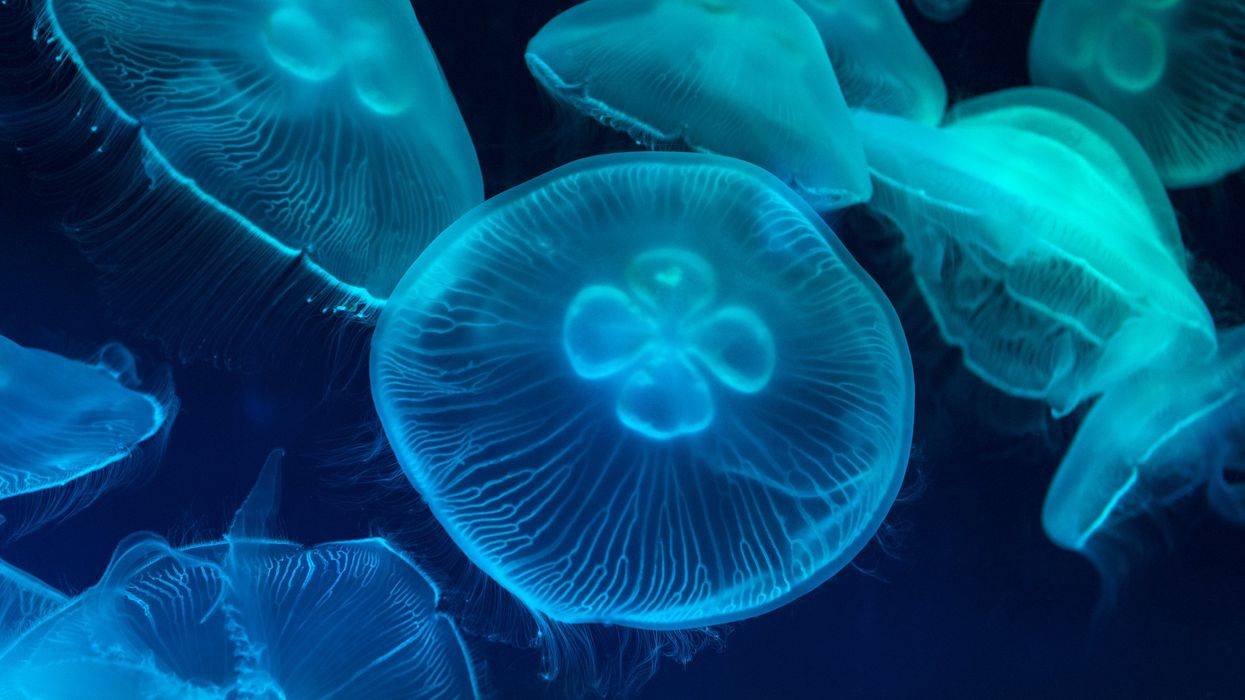Sinead Butler
Mar 04, 2024

iStockphoto by Getty Images
Jellyfish protein has helped scientists to create a new forensics spray which can reveal fingerprints in seconds.
It was developed at the University of Bath and the study has been published in the Journal of the American Chemical Society.
The dye spray is water soluble and has low toxicity which solves the problem that traditional methods have since toxic powders can damage DNA evidence and petrochemical solvents are not environmentally friendly.
How it works is that there are two different coloured dyes - LFP-Yellow and LFP-Red - bind selectively with the negatively-charged molecules found in fingerprints.
This in turn locks the dye molecules in place and can be seen under blue light as it releases a fluorescent glow.
There is no need to worry about splashes as the spray releases the dye finely, it is a cleaner method than powder too - plus it works on difficult surfaces that typically prove tricky to get a fingerprint.
"This system is safer, more sustainable and works faster than existing technologies," said Professor Tony James, from the Department of Chemistry at the University of Bath.
"It can even be used on fingerprints that are a week old."
James added that the spray using two colours means it can be used on different surfaces and the hope is for more colours to be produced in the future.
The jellyfish protein that is used in the spray is called Green Fluorescent Protein (GFP) and is often used by scientists for visualisation purposes.
Importantly, it also means the dyes don't obstruct the DNA analysis of the fingerprints.
Dr Luling Wu, also from the University of Bath (UK), said: "The probes are only weakly fluorescent in aqueous solution, but emit strong fluorescence once they bind to the fingerprints through the interaction between the probes and fatty acids or amino acids."
Scientists from Shanghai Normal University, China are also collaborating with The University of Bath team.
"We hope this technology can really improve the detection of evidence at crime scenes," said Principal investigator, Professor Chusen Huang.
"We are now collaborating with some companies to make our dyes available for sale. Further work is still ongoing."
How to join the indy100's free WhatsApp channel
Sign up to our free indy100 weekly newsletter
Have your say in our news democracy. Click the upvote icon at the top of the page to help raise this article through the indy100 rankings.
Top 100
The Conversation (0)













